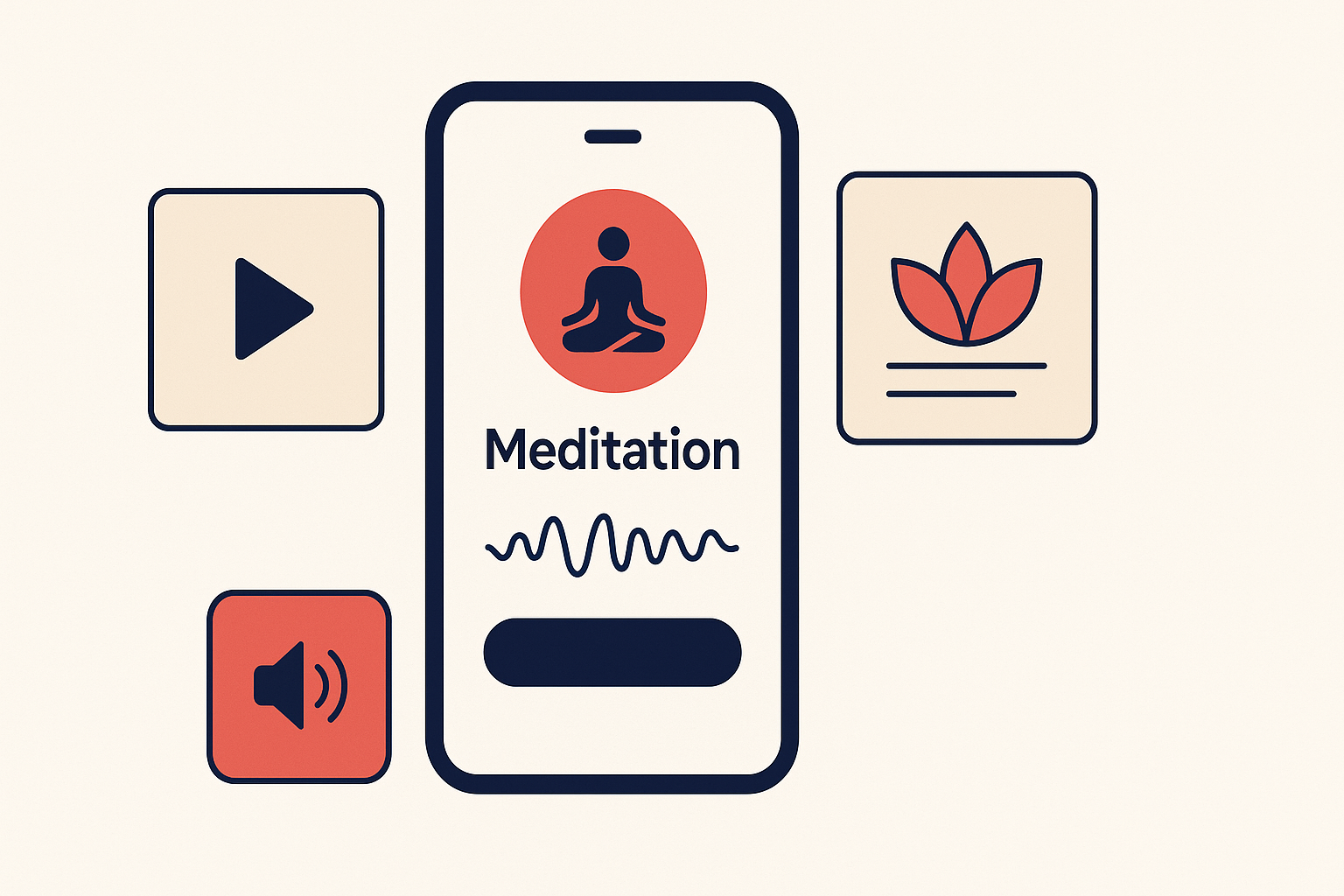How Mindfulness and Meditation Coaches Can Build Their Own App

Mindfulness and meditation coaches are increasingly looking for ways to expand their reach, deliver their teachings online, and monetize their expertise effectively. As more people embrace digital learning formats, those working in mindfulness coaching and meditation teaching are seeking scalable tools to connect with students beyond in-person sessions. Building an app has become a natural next step for many, yet barriers like high development costs and technical complexity often stand in the way.
Audiorista provides a no-code solution that helps coaches launch fully branded native iOS, Android, and web apps without the need for expensive developers or coding knowledge. This article walks through the value of certified meditation coaches, the role of digital platforms, the challenges of going online, and how Audiorista empowers mindfulness practitioners to scale their practices with ease.
The value of certified mindfulness and meditation coaches
A mindfulness coach guides individuals in cultivating awareness, focus, and calm in their daily lives. Similarly, a meditation coach helps students develop structured practices tailored to their specific needs, whether that’s reducing stress, improving focus, or integrating mindfulness into daily routines. The role of a certified mindfulness and meditation coach goes beyond simply delivering exercises—it’s about providing accountability, encouragement, and evidence-based techniques to strengthen long-term habits.
The benefits of hiring a mindfulness meditation coach are rooted in measurable improvements to well-being. Certified coaches can help clients reduce stress levels, improve mental clarity, and cope better with the demands of modern living. They also play an important role in teaching mindfulness practices correctly and sustainably, ensuring students use these tools effectively to support long-term personal growth. Having personalized guidance from such a coach creates a stronger foundation for achieving mental health goals compared to self-study alone.
Online and in-person coaching
When people search for “meditation coach near me,” their intent is typically to find local practitioners that can provide face-to-face sessions. However, searches for “mindfulness coaching online” reflect a growing demand for remote support, where clients can receive the same guidance without geographical limitations. Both approaches provide valuable opportunities, but digital platforms introduce an additional layer of accessibility and flexibility.
Through online coaching experiences, individuals benefit from convenience, greater availability of teaching styles, and the chance to connect with coaches who might otherwise be outside their reach geographically. Beyond one-on-one sessions, on-demand meditation coaching via dedicated apps provides round-the-clock access to lessons, guided practices, and structured programs. This approach makes support more scalable for the coach and more sustainable for the learner. Digital coaching apps extend this accessibility and allow mindfulness practices to integrate seamlessly into students’ daily routines.
Challenges and solutions for going digital
For many mindfulness coaches who want to share their practices digitally, several hurdles can complicate the transition:
- Technical development hurdles: Building and maintaining native apps requires costly developers and ongoing management.
- Monetization models: Structuring subscriptions, paywalls, or in-app purchases can be confusing and difficult without the right tools.
- Content management: Delivering a blend of audio, video, and written materials in one integrated platform is often a challenge.
- Brand identity: Ensuring that the content reflects a coach’s unique methods and maintains personal connection with students while scaling online can be difficult.
Without the right platform, these challenges can prevent coaches from fully digitalizing their offerings, often forcing them into fragmented systems or limiting their reach.
How Audiorista supports mindfulness coaches
Audiorista is designed to solve the exact challenges mindfulness coaches face when trying to bring their services online. With a no-code interface, coaches can build and launch apps without hiring developers, cutting down costs and time to market. This ease of access allows them to focus entirely on creating and delivering guided practices rather than managing technical barriers.
The platform also provides flexible monetization options, giving coaches the ability to set up subscription tiers, build paywalls for specific content, or use smaller microtransaction models. Full design and branding control ensure that the entire experience reflects the coach’s identity, maintaining trust and recognition with audiences. Coaches also maintain complete ownership of their customer data and gain access to comprehensive analytics, helping them optimize engagement and grow their practice strategically.
Engagement tools such as push notifications, guided onboarding, and recommendations ensure that students stay connected to content and encouraged to return regularly. Audiorista’s integrated content management system supports audio, video, and written materials, letting coaches deliver a rich multimedia learning experience. This combination of ease, scalability, and control makes Audiorista an invaluable tool for teachers building mindfulness and meditation apps that actually work for both instructors and learners.
Turning meditation courses into apps
For mindfulness coaches ready to take the next step, the process of packaging online courses into a profitable app is simple with Audiorista. By transforming existing class structures into digital modules, content can be curated for different subscription levels and delivered directly to users via app. For those who want to explore the process further, our dedicated guide on turning guided meditation content into a profitable app dives into strategies for monetizing mindfulness materials effectively. Likewise, our resource on how to create a subscription-based meditation course app provides a detailed look into structuring recurring revenue models using Audiorista.
By following these steps, mindfulness coaches can expand their reach to thousands of users, scaling content delivery without sacrificing personality or teaching style. A single library of guided meditations, videos, or written lessons can become the foundation for an app that serves both one-time and recurring subscribers, creating sustainable impact for the audience and steady revenue for the coach.
Start building your own meditation app today with Audiorista and bring your guided mindfulness coaching directly to your audience—without coding or upfront investment.


